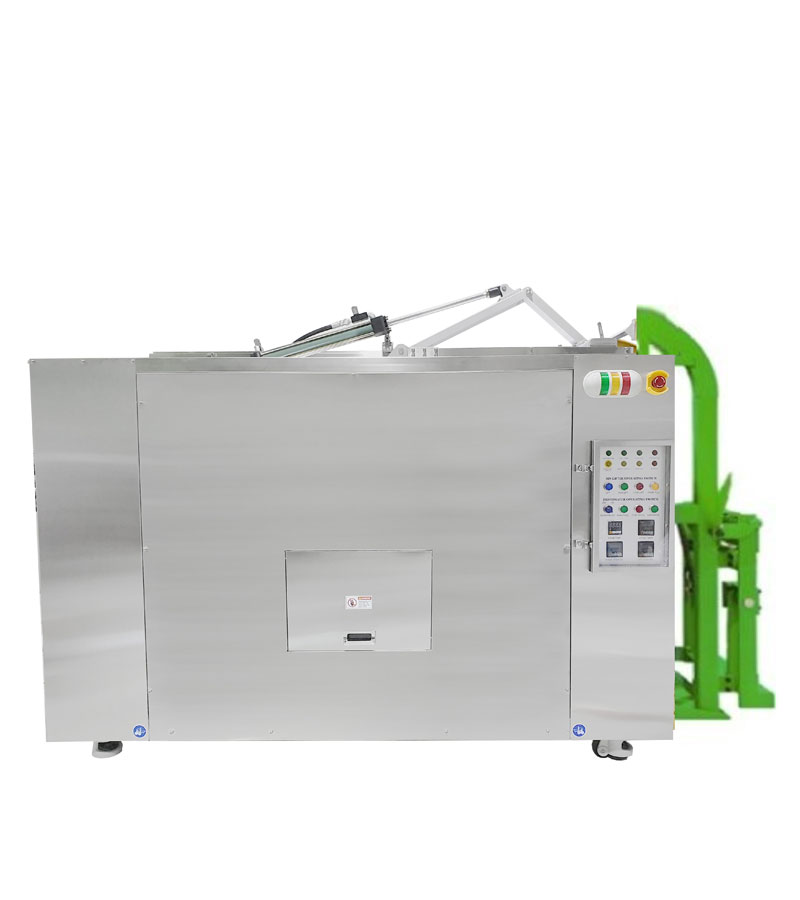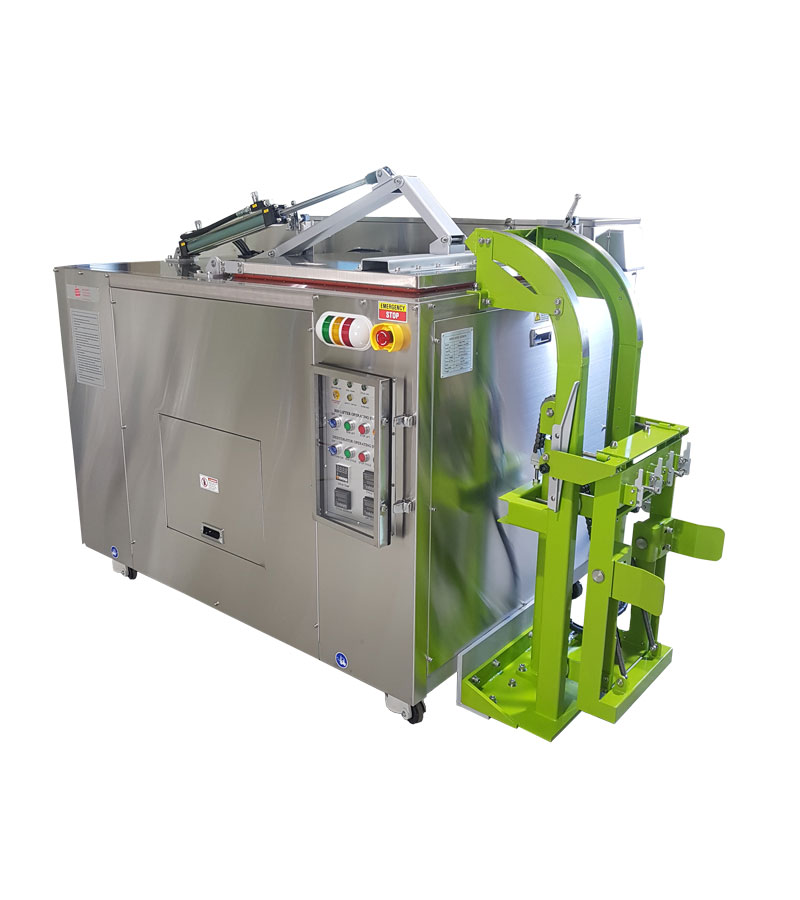PRODUCTS
FOOD WASTE BIO-DEHYDRATOR: FD-200AL / HGF-450AL


This is great for medium-sized operators such as corporate cafeterias, colleges, and larger commercial kitchens. Average cycle times are 13-18 hours depending on the moisture content. This model can handle up to 200kg (450lbs) of food waste per cycle. This unit processes approximately 6,000kg (13,500lbs) of food waste per month and treats up to 72 tons (162,000lbs) annually. Single button operation, and fully automated loading with the bin lifter.
BIO- DEHYDRATOR: FD-200AL / HGF-450AL
| CAPACITY : | 200kg / 450lb (per cycle) |
|---|---|
| LENGTH : | 1552mm / 61.12in |
| DEPTH : | 1292mm / 50.88in |
| HEIGHT : | 1363mm / 53.64in |
| CYCLE TIME : | 13-18 hours |
Make food waste easy to process with our bio-dehydrator. Use it as a soil amendment, send it to a compost facility, or dispose of it responsibly.
Load your food waste into the machine where it is macerated and heated to a point where the moisture is extracted from the reactor drum. The machine then condenses the steam and discharges a clear water condensate (no total suspended solids!). The remaining dry output is 80-90% volume-reduced, inert, pathogen free, compostable product with a variety of uses.
| MODEL | FD-200AL / HGF-450AL |
|---|---|
| Cycle Times/Full Load (capacity per cycle) | 1 Cycle / 13-18hrs - 200kg / 450lbs |
| Possible Cycles Per Day | 1-1.5 Cycle |
| Approximate Capacity per day (full 24 hours) | 250kg / 560lbs |
| NOTE : CYCLE TIME WILL VARY FROM LOAD TO LOAD DEPENDING ON THE MOISTURE CONTENT OF THE FOOD WASTE | |
| Depth | 1292mm / 50.88in |
| Length/Width | 1552mm / 61.12in |
| Length/Width W/Lift | 2172mm / 85.49in |
| Height | 1207mm / 47.53in |
| Height W/Lift | 1535mm / 60.43in |
| External Condenser Size(L x W x H) | X |
| Drum Volume | 350Liters / 92.466gal |
| Net weight of unit | 700kg / 1543lbs |
| CFM output radiator | 1200.2CFM = 34CMM |
| Delta T | 86F/30c |
| BTU/hr = 1.08 x CFM x ΔT | 111475 |
| Converted to kW | 32.7 |
